From July 12-15, DKI APCSS successfully conducted the final iteration of its long standing counterterrorism (CT) course, the Comprehensive Security Responses to Terrorism program (CSRT 21-1), which has been running since 2005 and has more than 1,600 graduates from throughout the Indo-Pacific region and around the globe. In future, CT will be covered in the new, Comprehensive Security Cooperation (CSC) program, which will be launched by DKI APCSS in 2022.
Adapting to the Pandemic
Historically, CSRT has been conducted at the DKI APCSS facilities in Waikiki over a period of four to five weeks. Due to the COVID-19 pandemic, CSRT 21-1 became the first version of the course to be delivered online. As program manager Dr. Sam Mullins explained, “This meant we had to take a five-week curriculum, prioritize and adapt, and shrink that down to just four days.” Despite the difficult circumstances, CSRT 21-1 was well-attended: 66 CT and security practitioners from 29 locations, throughout the Indo-Pacific and beyond, overcame time-zone differences and other challenges to successfully complete the program. As one Fellow commented afterwards, “It was a great environment despite being virtual. It’s got to be amazing in person!”
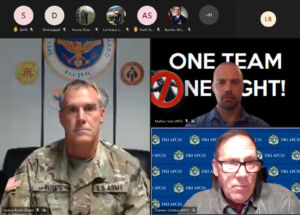
Commander, Special Operations Command Pacific (SOCPAC) Brig. Gen. Joshua Rudd (left) provides a keynote presentation, as DKI APCSS Dean Carleton Cramer (bottom right) and Program Manager Dr. Sam Mullins help facilitate the discussion.
SOCPAC Commander
The keynote speaker on CSRT 21-1 was Commander, Special Operations Command Pacific (SOCPAC) Brig. Gen. Joshua Rudd, who briefed the Fellows on the evolving role of SOCPAC in the context of shifting U.S. strategic priorities.
“The emphasis is increasingly on strategic competition and state actors vice non-state actors,” Rudd explained, “But it doesn’t mean we stop [doing CT]… We’re looking to leverage our experiences in the counter violent extremist fight and our counterterrorism expertise to strengthen our alliances and partnerships. And that’s one of the key pillars of the INDOPACOM strategy… to ensure a free and open Indo-Pacific.”
Strategic Competition and Irregular Warfare
In line with Rudd’s remarks, CSRT 21-1 expanded the core CT curriculum to include discussions of strategic competition and irregular warfare (IW). Fellows learned about the changing concept of IW, now broadly defined by the U.S. Department of Defense as a “struggle among state and non-state actors to influence populations and affect legitimacy.” Related sessions explored the role of states in terrorism in South Asia, and a comparison of Chinese and Russian approaches to IW. Additionally, Fellows took part in a red-teaming table-top exercise that explored the connections between strategic competition, IW and state sponsorship of terrorism. According to Mullins, “The key takeaways in all this, are first, to recognize that rather than being mutually exclusive, counterterrorism and strategic competition are actually closely related, and second, that this is not a job for special operations forces or the military alone.”
Subject Matter Experts
In order to give Fellows access to the most cutting-edge insights and expertise in the field of CT, CSRT 21-1 enlisted a diverse range of high-profile, subject matter experts. Mr. Vencent Salido, presently a deputy director at the Philippine Central Bank, and formerly a leading member of the Philippine Financial Intelligence Unit, discussed best practices in countering terrorist financing. A panel of three, world-renowned academic experts examined current and emerging terrorism trends, including Dr. Kumar Ramakrishna, Head of the International Centre for Political Violence and Terrorism Research at the S. Rajaratnam School of International Studies in Singapore; Dr. Colin Clarke, Director of Policy and Research at the Soufan Center; and Dr. Amira Jadoon of the highly esteemed Combating Terrorism Center at West Point. The program further benefited from the expertise of Ms. Elina Noor, Director of Political-Security Affairs at the Asia Society Policy Institute, who gave a presentation on preventing and countering violent extremism.
Interactive Experience
Commenting on the course curriculum, Mullins emphasized the interactive nature of the program.
“Because our Fellows are all experienced practitioners, we make every effort to make our programs as interactive as possible,” said Mullins. “In each seminar, you’ve got a dozen or so Fellows, all from different countries, and it’s really important we give them the opportunity to network with each other and to share their different experiences and perspectives.”
Pre-recorded lectures and live elective sessions were complemented by panels, followed by a variety of small group activities, including semi-structured discussions, table-top exercises and a debate on the future of terrorism in the Indo-Pacific.
Fellows Close the Show
The program concluded with a panel of seven seminar representatives from the following countries: Yemen, Kenya, Ghana, Nepal, Cameroon, Bangladesh and Pakistan. Drawing upon their discussions with seminar-mates throughout the course, the panel identified a number of critical challenges or gaps in CT, as well as best practices and recommendations. This included discussions of long-standing issues, such as interagency rivalries, as well as the impact of great-power competition and the fallout from the pandemic. Fellows emphasized the need to overcome national rivalries and tribalism in order to build mutual trust and stronger cooperation in the fight against terrorism. They further highlighted the importance of building stronger partnerships with the private sector and civil society in order to build resilience against the malign activities of both state and non-state actors.
Positive Results
Survey results demonstrate impressive results of the program, despite the compressed timeline and virtual delivery. Ninety-eight percent of Fellows agreed or strongly agreed that they had a deeper understanding of terrorism, IW and CT, as a result of completing CSRT 21-1. One hundred percent of Fellows agreed or strongly agreed that the knowledge/skills acquired on the program would likely help them in their professional duties, and also indicated their intent to share the knowledge acquired with colleagues. As summarized by one Fellow, “This course enlightened and expanded my understanding of the range of terrorist threats, organizations, and how the international community is combating the adaptive nature of the threat.” Another stated that “This course has… changed my thinking on how to address [CT] in our country plans regarding security cooperation/engagement.” The course objectives—to educate, connect and empower international partners in the fight against terrorism and malign state influence—were thus achieved, directly supporting U.S. National Defense and Counterterrorism strategic aims.
The Way Ahead
Although this was the final iteration of CSRT—and also the last functional course of its kind at the DKI APCSS—it is not the end of CT/IW programming at the Center. Beginning in 2022, DKI APCSS will launch a new, five-week Comprehensive Security Cooperation (CSC) program, which will bring together a diverse range of security professionals to examine a multitude of cross-cutting challenges, from strategic competition to health security and the impact of climate change. Within CSC, Fellows will be able to choose from a number of specialty tracks, where they will have the opportunity to focus on issues such CT and IW, as well as cyber, maritime and economic security. Fellows will therefore gain a broader, strategic level understanding of security issues in the Indo-Pacific and further expand their professional networks in a way that helps to break down traditional silos and take regional security to the next level. “The threat is not going away and neither are we”, said Mullins. “Counterterrorism and irregular warfare are here to stay, and we’ve got some exciting times ahead of us.”



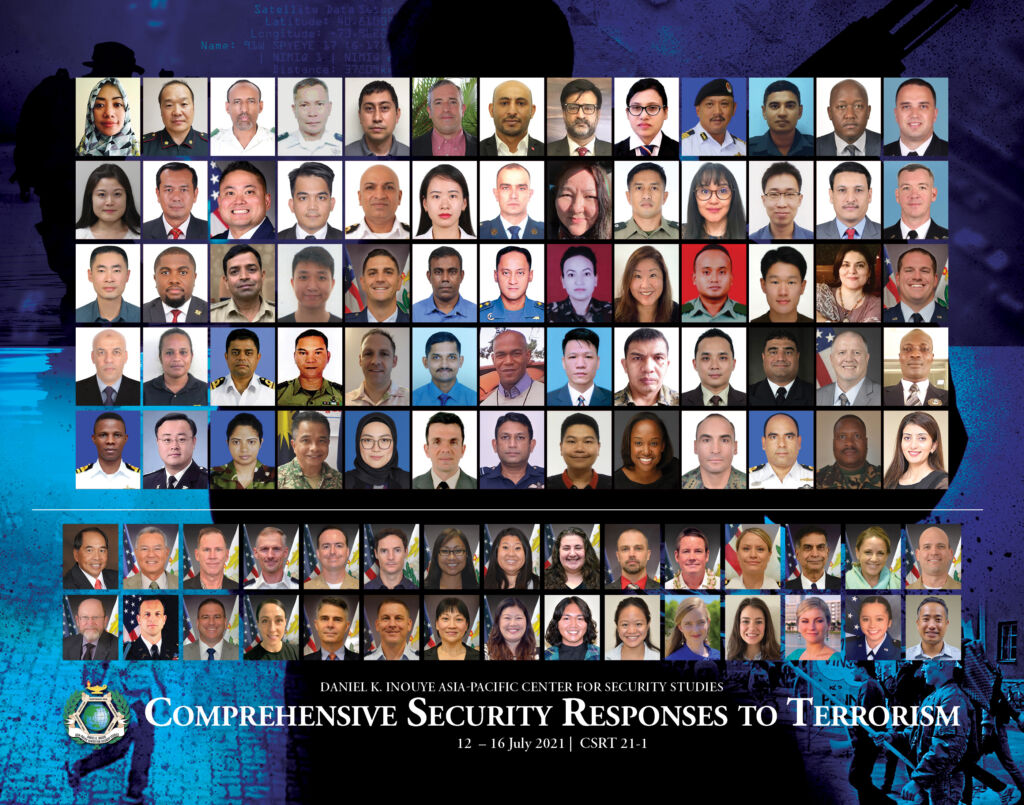
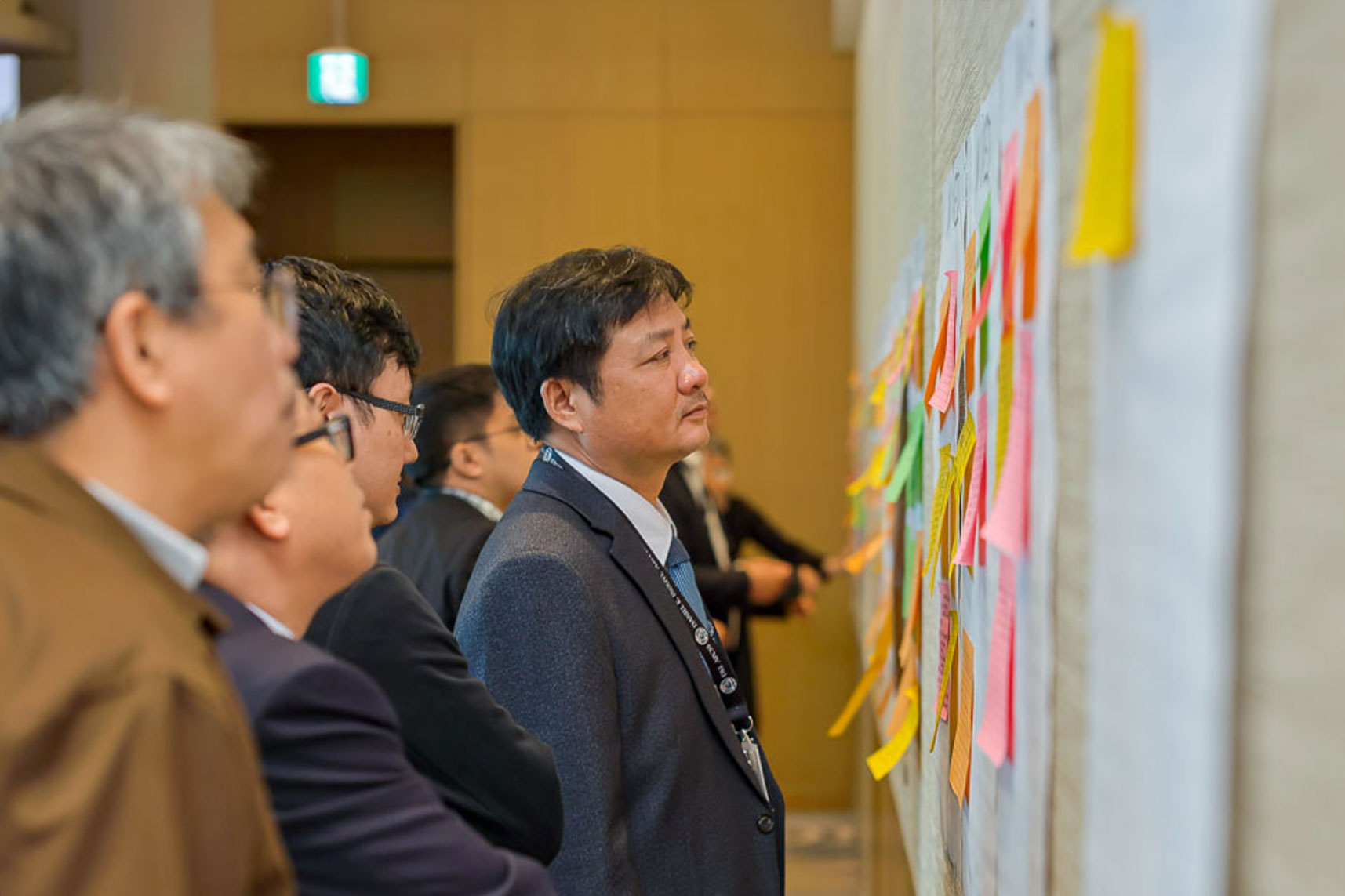
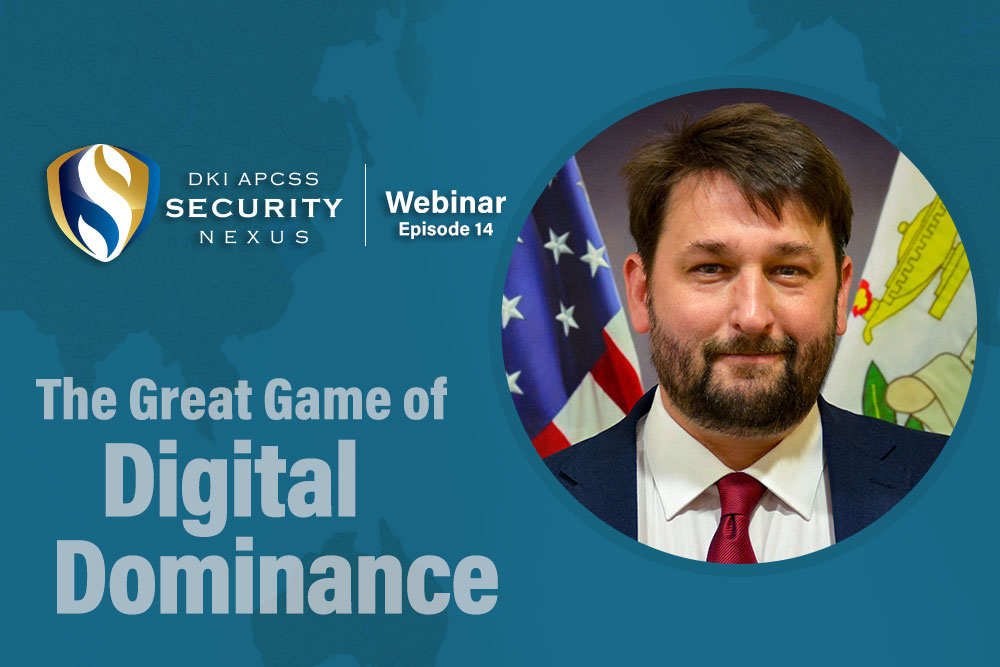
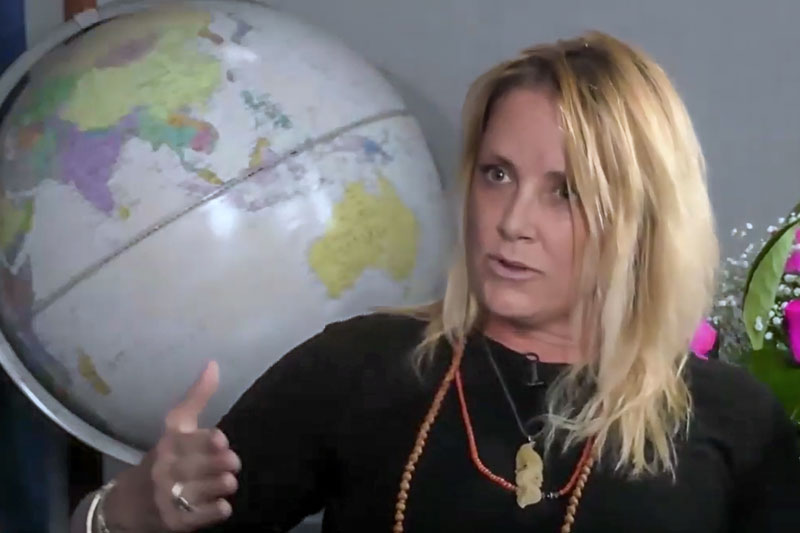




Leave A Comment